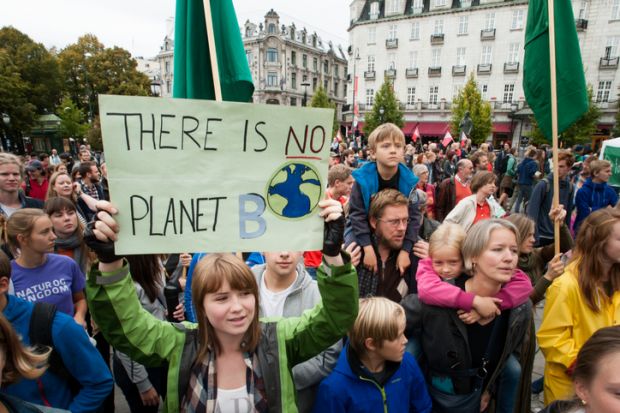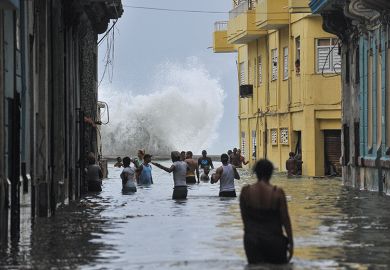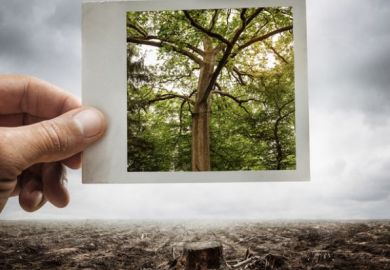If the coronavirus is like a storm battering the planet, there is every danger that the full impact of climate change will feel like a tsunami.
While Covid-19 has profoundly disrupted every aspect of our lives – employment chances, health and education will be scarred for a generation – it will feel like a dress rehearsal compared to what we will witness if carbon emissions are allowed to rocket still further.
The eyes of world leaders, universities and businesses have been understandably fixed on the pandemic, but the wildfires in the US and the recent controversial interventions of Extinction Rebellion in the UK have underlined that the impending environmental catastrophe has not gone away. And while worldwide lockdowns may have eased carbon emissions, possibly even delaying the worst for a few years, young people remain very concerned.
A recent poll of Generation Z undertaken for the University of Winchester, where I am vice-chancellor, found that 54 per cent believe the climate crisis is the most important issue of the day – and a majority said they believe the government is handling the crisis poorly.
Tackling the climate emergency requires a revolution in everything we do – and that includes universities. The good news is that the generation of students coming into our campuses are ready for this kind of action.
As a co-chair of the UK Climate Commission for Further and Higher Education, I am well aware that there have been many valiant efforts in universities to make a difference. This includes a vigorous effort to reduce carbon emissions on campuses, switching to greener energy, reducing energy output and encouraging sustainable habits in staff and students.
And, of course, universities have been at the cutting edge of research in this space. We employ the people who have sent up the warning flares, who have explained to politicians and public alike what they are doing and what is about to happen to our planet.
But this is no longer enough: we need the sector to double down.
As universities, we must urgently broaden our thinking about how we prepare and educate future generations for the worsening climate crisis. As leaders in education and research, universities are in a unique position to become catalysts for real and lasting change.
We must move away from small-scale mitigation efforts to reduce carbon emissions and think on a larger scale about how we can radically rethink teaching and research. We should take inspiration from the deep adaptation movement, which, inspired by the work of Jem Bendell at the University of Cumbria, is clear that society needs to urgently prepare itself for the worst possible outcomes of climate change. This is the kind of pragmatic, realistic leadership that we need to follow.
This is a generation motivated by a wider set of progressive values that inform the decisions they make and their attitudes to the wider world – the rise of the Black Lives Matter this year perfectly encapsulates this. Some 83 per cent of students said in our survey that the “values” play a very important or quite important role when they are making a decision about where to study. Universities should not underestimate the sacrifices they are prepared to make to further those values.
Whatever sacrifices we make now will be a lot less exacting than those we will have to make if the climate crisis is not addressed. Students on campus know this. The schoolchildren preparing to replace them also know this. Universities need to step up and act.
Joy Carter is vice-chancellor of the University of Winchester.
Register to continue
Why register?
- Registration is free and only takes a moment
- Once registered, you can read 3 articles a month
- Sign up for our newsletter
Subscribe
Or subscribe for unlimited access to:
- Unlimited access to news, views, insights & reviews
- Digital editions
- Digital access to THE’s university and college rankings analysis
Already registered or a current subscriber?








